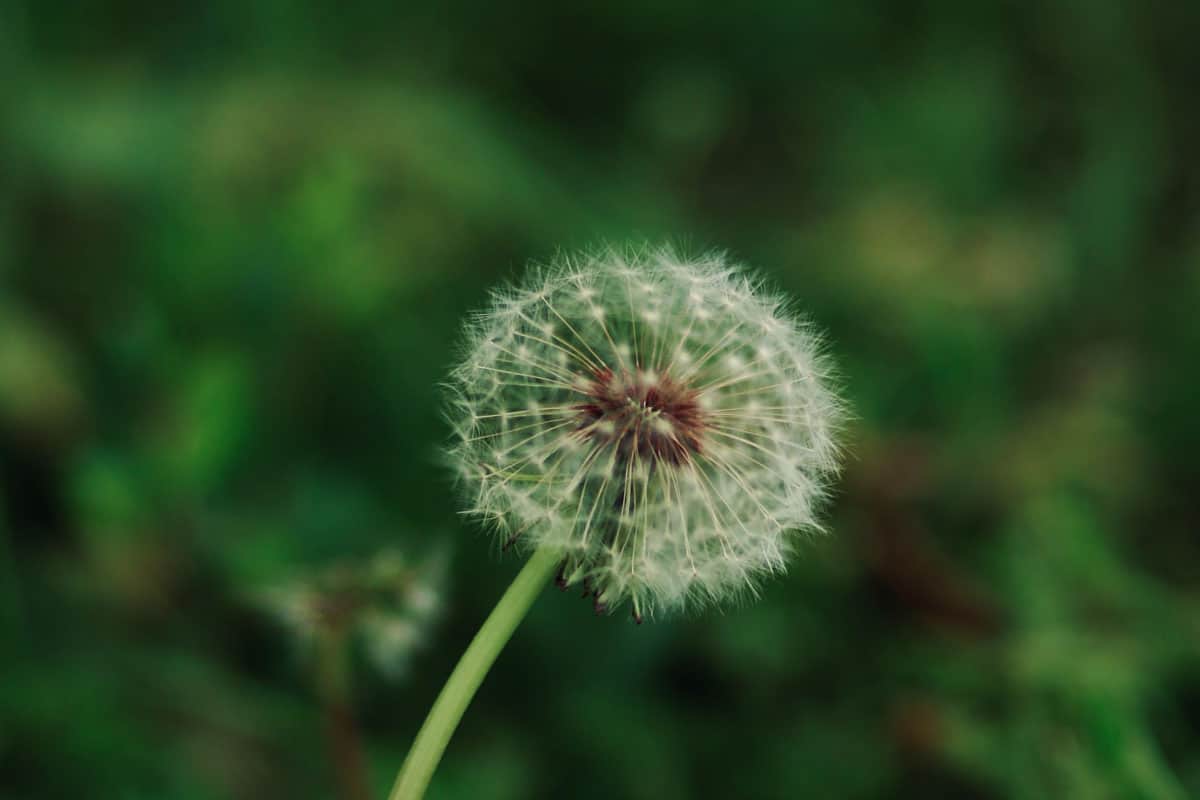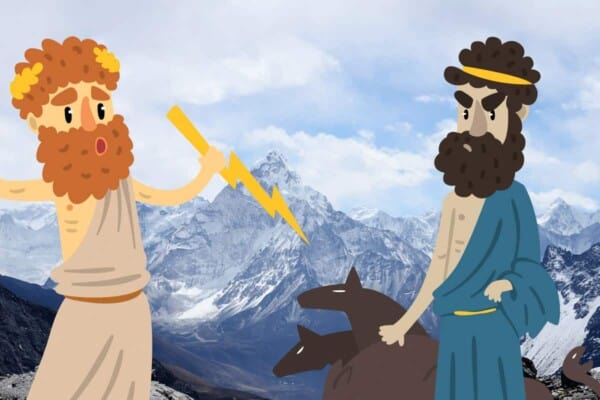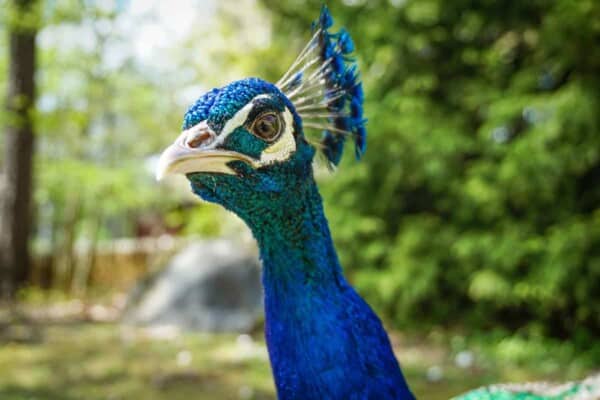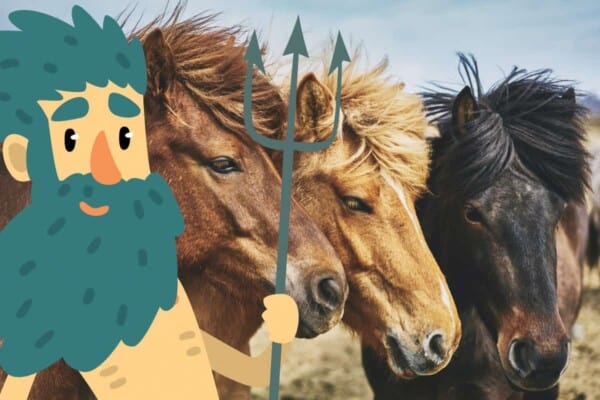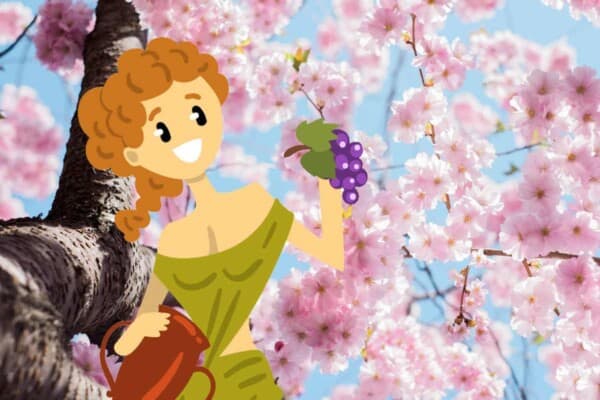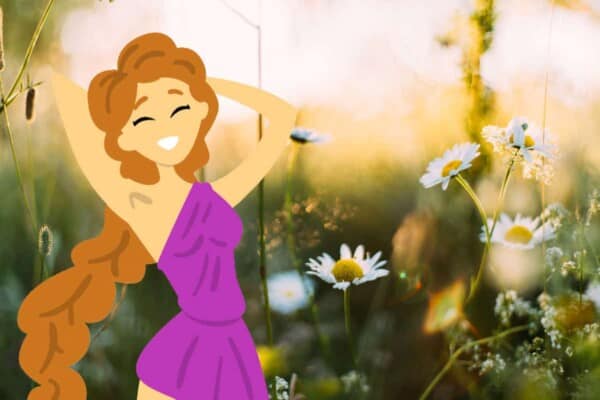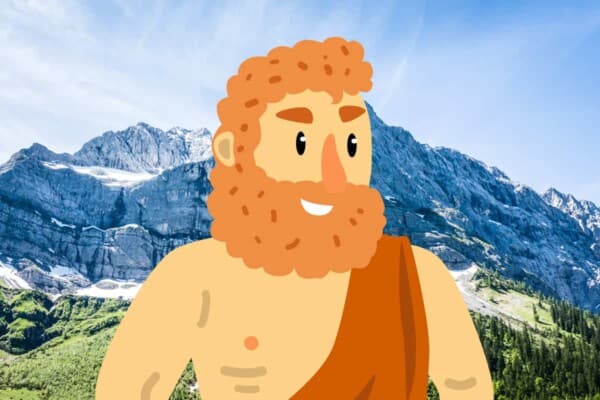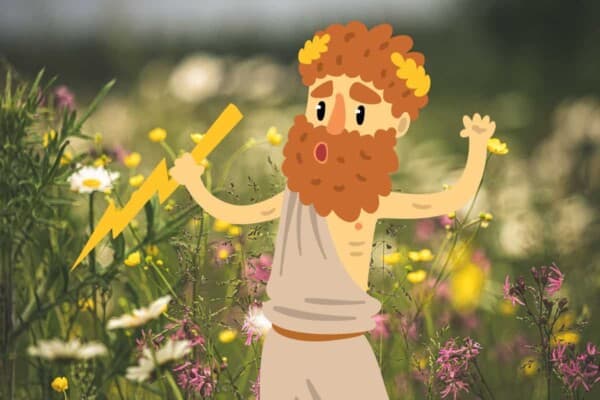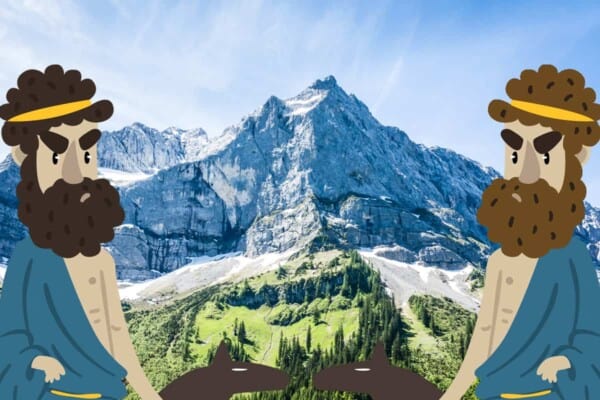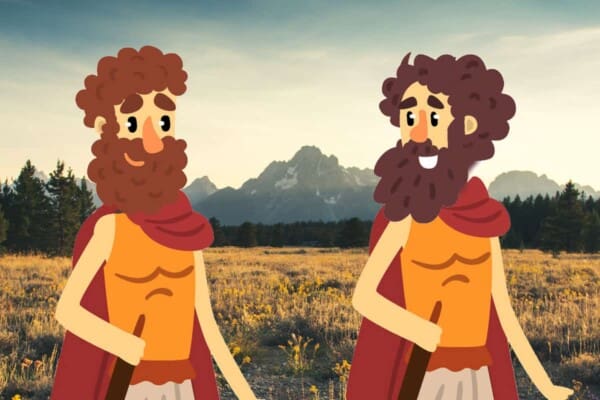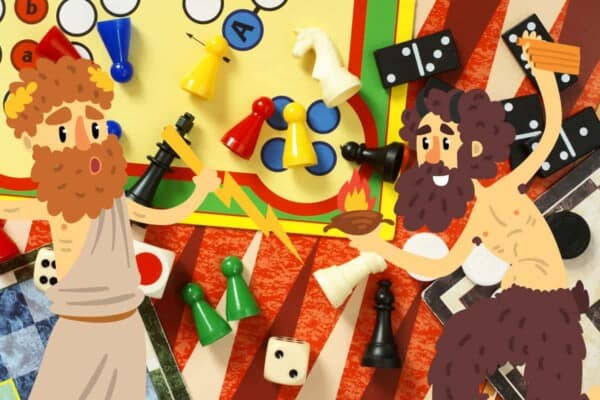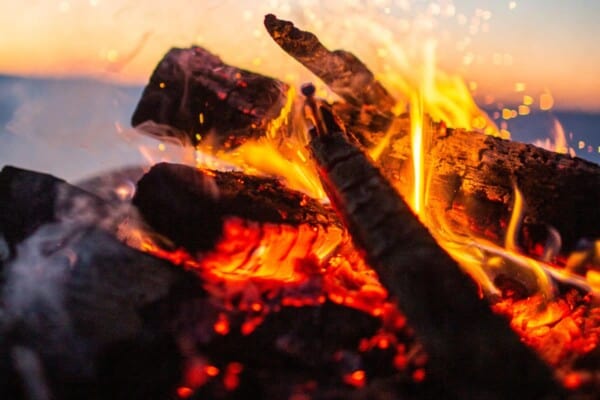Gaia, also known as Mother Earth, was the Ancient Greek progenitor of all life in the heavens and earth. She was an anthropomorphic representation of the earth itself, and mother to the Titans, the Cyclopes, and many others. Her grandchildren were the first Olympian gods, while her husband and son was named Ouranos (or Uranus), the sky.
Gaia (also known as Ge) features heavily in the story of the world’s creation. The following facts describe some of the most interesting things about this primordial deity, and how she played a key story throughout Greek religious practice and mythology.
Interesting Facts About Gaia
1. Gaia produced her sons through parthenogenesis and had children with them both
She married Ouranos and produced the Titans and others, while with her son Pontus she was mother to several primordial gods and monsters.
2. She had children with many, many people, most of whom were family members.
Apart from Ouranos and Pontus, her consorts included:
| Name | Relation | Important Children |
| Tartarus | Another primordial entity | Typhon, Echidna, and other monsters |
| Aether | Another primordial entity | Sometimes Ouranos, often personifications of pride, incest, and others |
| Poseidon | Grandson | Antaeus, Charybdis, Laistrygon |
| Zeus | Grandson | Agdistis, Manes, the Cyprian Centaurs |
| Hephaestus | Great-grandson | Erichthonius of Athens (raised by Athena) |
| Oceanus | Son | Triptolemos (sometimes) |
She also bore many other children by unknown or unnamed consorts.
3. Gaia conspired against her husband with the help of their youngest son
Ouranos cruelly locked Gaia’s youngest children away in Tartarus, so Gaia approached the youngest Titan, Kronos, to overthrow Ouranos. Kronos agreed, and sliced off Ouranos’s genitals with a sickle that Gaia provided him.
4. Gaia prophesized that Kronos’s son would overthrow him
In response, Kronos swallowed each of the children he fathered with his sister-wife, Rhea, except for their youngest son Zeus. Rhea took this boy and hid him away until he was grown.
5. Zeus promised to free the still-trapped children of Gaia in exchange for her help defeating Kronos
Kronos had become a cruel replica of his father, and so Gaia agreed. She aided Zeus by handing him an emetic that would make Kronos throw up the swallowed gods. After this, Zeus freed Gaia’s giant children and they banded together to overthrow the Titans.
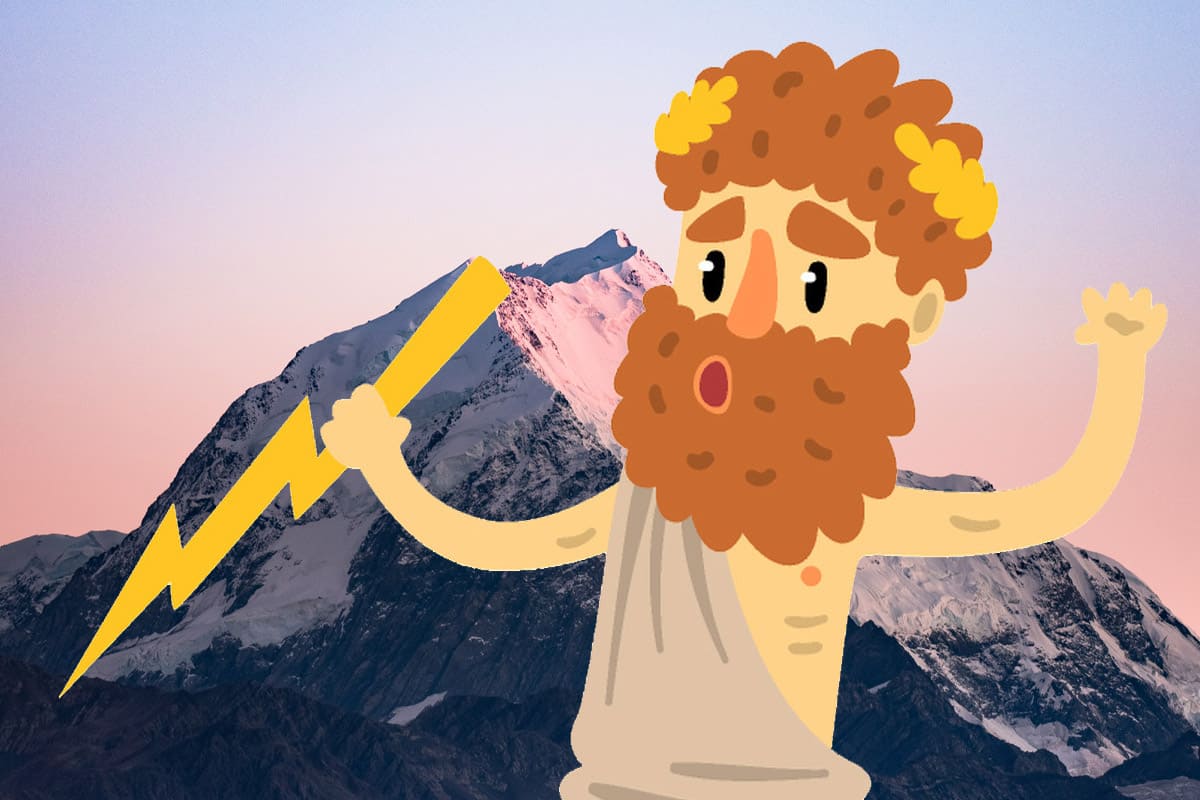
6. Gaia bore Typhon in her anger at Zeus
Zeus and his siblings defeated Gaia’s younger children, the Giants, at the Gigantomachy. In fury, Gaia mated with Tartarus to produce a monstrous serpentine deity who would challenge Zeus for the throne. Zeus overcame him, but not without difficulty. In some versions, Typhon is instead a son of Hera and Kronos.
7. Gaia’s Roman name was Terra and both of her names influenced language today
Like her Greek name, Terra literally meant ‘earth’. It’s still used today in phrases like terra firma and words like terrain which refer to the ground. Gaia, meanwhile, was the poetic form of ‘ge’, still used in Modern Greek to mean earth. It can also be seen in words such as geology or geography.
8. The worship of Gaia was often conflated with that of her daughter, Rhea, and her granddaughter, Demeter
All three were goddesses of harvest, earth, and nature, and all three were matronly figures. Gaia was the mother of all, Rhea the mother of gods, and Demeter the mother of Persephone, queen of the Underworld.
9. Gaia had a number of epithets when worshipped, and they all had a similar theme.
Her most common epithet was Anesidora, meaning ‘giver of gifts’. Her other epithets included Pandoros (‘all gifts’), Kalligenia (‘beautiful born’, which may instead have been a name of Persephone’s nursemaid), and Eurosternos (‘broad-chested’ or ‘wide-bosomed’).
10. According to some sources, Gaia was the original host of the Oracle of Delphi
She eventually passed this power over to her grandson, Apollo, when he earned it. Alternatively, it first went to Themis, Gaia’s daughter.
11. Gaia conceived children when the blood of Ouranos’s shorn genitals touched the earth
These three groups were the Giants, the Erinyes (Furies), and the Meliae (ash-tree nymphs). The blood also landed in the sea, personified in Gaia’s sister Thalassa. From it rose Aphrodite.
12. In some versions, her mother was Hemera and her father Aether
Hemera was the primordial goddess of the day. In these versions, Ouranos is often Gaia’s brother rather than son. In other stories, Gaia was born from Aether and an unnamed mother, or simply came into being with no parents.
13. She had several siblings depending on the mythology
All of them were primordial beings. All of the children who are mentioned across different stories include: Gaia/Ge (earth), Ouranos (sky), Thalassa (sea), Nyx (night), Erebus (darkness), Tartarus (torment), and Eros (love and sex).
14. The Eleusinian Trio was sometimes considered an aspect of Gaia herself when they were brought together
This trio was the maiden (Persephone), the mother (Demeter), and the crone (Hecate). The Eleusinian mysteries focused on magic and resurrection, placing these three goddesses as one at their center.
15. The union of Gaia and Ouranos as both husband and wife and sky and earth is reflected in Egyptian myth, though the genders are reversed
For the Egyptians, the sky was a goddess, Nut, and the earth her brother and consort, Geb. From them sprang many of the original gods, until Nut’s father Shu was tasked with separating them.
16. Gaia hid Zeus’s lover Elara, or Larissa, deep in the earth to protect her from Hera
The mortal Elara became pregnant by Zeus and the king of the gods was eager to protect her from Hera’s wrath. He hid her underground while she was pregnant and she bore a child. This child, the giant, Tityos, who was the son of Gaia, Zeus, and Elara.
Final Thoughts
Gaia was a mysterious figure precisely because, with a few exceptions such as Aether, she was the oldest deity of all. The Greeks respected the earth and all that was upon it, as it was both a planet and the body of the mother who had given them life.
Contents
- Interesting Facts About Gaia
- 1. Gaia produced her sons through parthenogenesis and had children with them both
- 2. She had children with many, many people, most of whom were family members.
- 3. Gaia conspired against her husband with the help of their youngest son
- 4. Gaia prophesized that Kronos’s son would overthrow him
- 5. Zeus promised to free the still-trapped children of Gaia in exchange for her help defeating Kronos
- 6. Gaia bore Typhon in her anger at Zeus
- 7. Gaia’s Roman name was Terra and both of her names influenced language today
- 8. The worship of Gaia was often conflated with that of her daughter, Rhea, and her granddaughter, Demeter
- 9. Gaia had a number of epithets when worshipped, and they all had a similar theme.
- 10. According to some sources, Gaia was the original host of the Oracle of Delphi
- 11. Gaia conceived children when the blood of Ouranos’s shorn genitals touched the earth
- 12. In some versions, her mother was Hemera and her father Aether
- 13. She had several siblings depending on the mythology
- 14. The Eleusinian Trio was sometimes considered an aspect of Gaia herself when they were brought together
- 15. The union of Gaia and Ouranos as both husband and wife and sky and earth is reflected in Egyptian myth, though the genders are reversed
- 16. Gaia hid Zeus’s lover Elara, or Larissa, deep in the earth to protect her from Hera
- Final Thoughts

